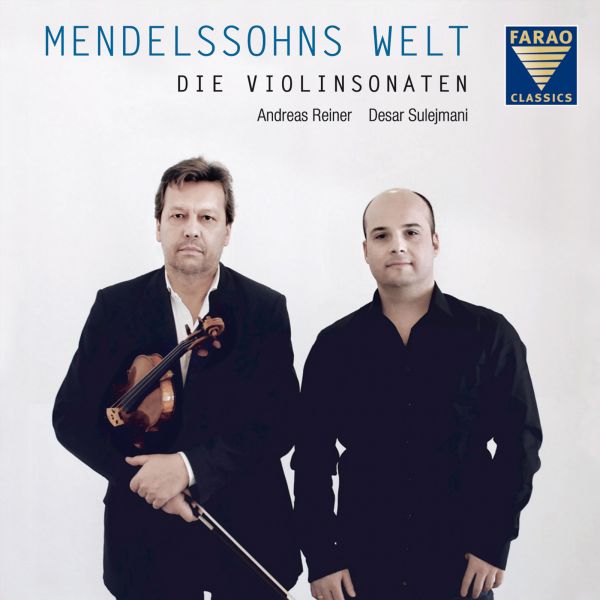

Order number: B 108 081

Price € 15,00
Shipment costs € 3,90 (worldwide)
free above € 30,00 order
Shipment costs € 3,90 (worldwide)
free above € 30,00 order
Download available:
HIGHRESAUDIOOrder number: B 108 081

Mendelssohns Welt | Die Violinsonaten
Andreas Reiner - Desar Sulejmani
Recorded at Farao Studios Munich, 2009
CD
Mendelssohn's World - The Three Violin Sonatas
"From the miracle of the 11-year-old genius to the depression of the 17-year-old to the jubilant virtuosity of the mature Mendelssohn - that is Mendelssohn's world, a world of expression that I very much revere and love."Andreas Reiner
Even as a child, Felix Mendelssohn Bartholdy was possessed of an exceptional and universal talent. At the age of 11, in addition to his studies as a pianist and violinist, he started composing at a rapid rate. But this highly gifted child also received a sound classical education apart from music. For example, as a twelve-year-old he spent 16 days in the company of Johann Wolfgang von Goethe, perhaps the greatest and most universal genius of his day, filling the time mostly with philosophical conversation.
Mendelssohn wrote three violin sonatas. Of these, only the F minor sonata was published in his lifetime, a work in which the composer, then just 14 years of age, achieved incredible profundity and mastery. In 1953, Yehudi Menuhin found and published the manuscript of the "great" F major sonata, composed when Mendelssohn was 29 – a mature masterpiece. The "early" F major sonata was not discovered until 1977. It was written in 1820; Mendelssohn was just 11 years old.
These days, his music is frequently felt to be happy and carefree, and is sometimes even described as innocuous.
With the three violin sonatas, Andreas Reiner and Desar Sulejmani provide us with a deep and different insight into Mendelssohn's inner world. They play with a musical flexibility and coherence of interpretation that, particularly in the two early works, show us another Mendelssohn: an almost alarmingly mature and adult child.

